October 25, 2013
Last week, a decision was made by the Mexican government to ban genetically modified corn from being planted or sold within the country’s borders, effective immediately.
While I can’t even begin to tell you how elated I am over this announcement (you can read more about the ban here and why it matters so much to me here), I’ve been shocked at how little I’ve heard it mentioned in the media, or anywhere else for that matter. It could be that living in Mexico myself, I’m simply far enough removed from the crunchy counterculture or whole-ier-than-thou produce isle conversations to know what’s being chewed on stateside, but even still, only two Facebook mentions among my friends? Clearly, this parade’s not been properly publicized.
Rather than go into all the reasons Monsanto et al. have to keep this HUMONGOUS NEWS on the down low, I’d like to focus on the cause for celebration by emphasizing two unique perspectives as I see them:
-
How this ban benefits the developed world (in this case, the US)
-
How this ban benefits the developing world (in this case, rural Mexico)
Though I was initially reluctant to divide “Us” from “Them” as a matter of principle, the simple truth is that having met Them; having warmed myself by their cook fires, held their burn-scarred babies and sampled enough fresh-ground, abuelita-pressed, hot-off-the-comal tortillas to appreciate one variety of corn and face of poverty from the next, I believe we owe it to the developing world to acknowledge the differences; the irrefutably huge disparity between us. After all, those most directly affected are often the ones with the least say in the matter.
But first…
How This Ban Benefits Us:
-
Yet another country is standing up against the US-based biotech giants, sending a message of solidarity with Japan, the UK, Australia, New Zealand, Germany and the rest of the growing GMO-opposed world.
-
Landmass-sharing stateside natural resources have been consequently spared the threat of increased chemical usage, erosion and cross-pollination, etc… that would have inevitably resulted had Monsanto and their kind been allowed to do south what they’re already doing north of the border.
-
The fact that a neighboring country is taking a stand will surely mean increased international pressure against and transparency within US-based conglomerates (surely, right?).
-
The some 33.7 million Mexican-Americans living in the US and their potential allegiance to both countries will theoretically influence the popular consensus when it comes to stateside food security (again, one can hope).
-
According to Pat Mooney, the head of the Action Group on Erosion, Technology and Concentration, “It’s the first time in history that one of the most important harvests in the world is threatened in its centre of diversity. If we let the companies win, there will be no chance to defend them in other parts. What is happening here is of key importance for the rest of the world.”
And though their perspectives may seem secondary as far as our own daily lives are concerned, I’d argue they matter just as much on the global scale, maybe even more.
How This Ban Benefits Them:
-
Corn is cornerstone to Mexican culture. By protecting her 50+ native strains against the genetic homogenization at the heart of Monsanto’s mission, thousands of years of culture are also free from compromise.
-
Mexico’s one million campesinos, or small-scale farmers, are still responsible for a large percentage of the country’s food production. By keeping corn cultivation out of the hands of those purely motivated by giant profits, small farmers, their families and their communities still stand a chance of survival.
-
The vast majority of these campesinos are indigenous Mexicans. By protecting corn, the customs, traditions and livelihood of native peoples are also preserved.
-
Those invested in the land for centuries are also invested in the sustained fruits of their labor. Sara Desantis, who outlined an article about the threat of GMOs to indigenous corn for the scientific journal, Nature, states that, “Mexican campesinos maintain current varieties and facilitate the evolution of new varieties. These will evolve only if farmers remain the stewards of corn and the protectors of biodiversity.” Saving seed from privatization is essential toward this end and will now be allowed to continue.
-
A major difference between impoverished farmers and impoverished everyone else in this country is that farmers are entirely less dependent on big business for cheap (and usually nutritionally poor) food. Mexico’s food sovereignty is directly dependent on the continued protection of corn, its cultivation and its campesinos. In this light, Mexico’s ban is an act not only against the biotech industry, but the junk food industry, which is fighting just as hard for control here as its corporate cousins.
-
The survival of small family farms helps ensure the survival of local economies and therefore local culture, which is undoubtedly one of the greatest gifts Mexico offers its people and finest examples it sets for the rest of the world.
- The children of Mexico’s impoverished majority will have enough to reckon with as they grow up with more and more global influence, yet limited access to opportunity. Securing their food supply and basic means of survival matters more than any of us can even imagine.
Though far from exhaustive, I am struck by how interrelated the two lists actually are. Every one of the benefits on the Us list either directly or indirectly benefits Them, and vice-versa. As we continue to behave and grow as a global society, denying our interconnectedness and interdependency, or viewing nearly any of today’s issues as politically, environmentally or socially isolated is clearly no longer serving us as a species.
In the same vein, as conventional US agriculture plows ahead at high speed into the uncharted territory of transgenics, the ancient ways of native peoples in Mexico and the world over will become more and more precious to those of us seeking sustainable solutions.
Vandana Shiva, a world renowned seed activist who’s been fighting Monsanto’s catastrophic control over India’s cotton had this to say about seed savers worldwide:
“We are doing what you are doing, and we are part of one movement that is planetary while being deeply local. We have started a global citizen’s movement for seed freedom, to say no to transgenics, no to patents, no to Monsanto’s empire to destroy the planet, our lives and our food systems.”
Mexico’s ban on GMO corn is a global gain.
On behalf of those of us in the developed world who see the planet’s food supply as precarious and ever-encroached upon and who believe responsible policy knows no borders, thank you, Judge Jaime Eduardo Verdugo and all those who played a part in making this happen. You are modern-day heroes.
And for my farming friends in rural Chiapas (and now in Quintana Roo), the vast majority of whom have had no idea that their food, families and subsistence were so severely at stake, thank you, Mexican government, for protecting your corn, your culture and consequently, your children’s children.
One victory at a time, folks. That’s how it happens. Let’s not forget to celebrate! Mexico certainly never does.
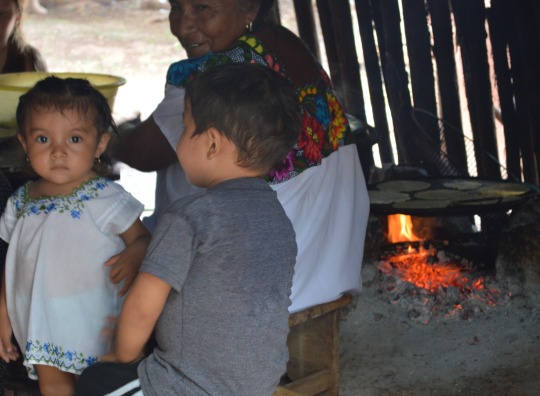


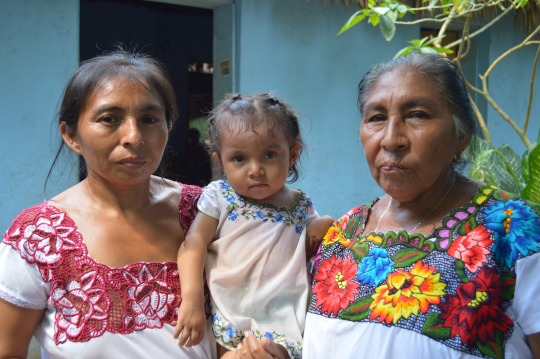


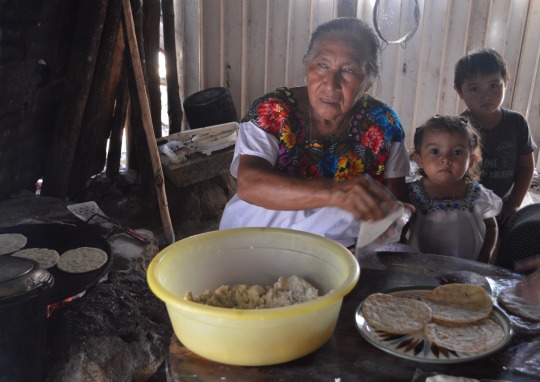
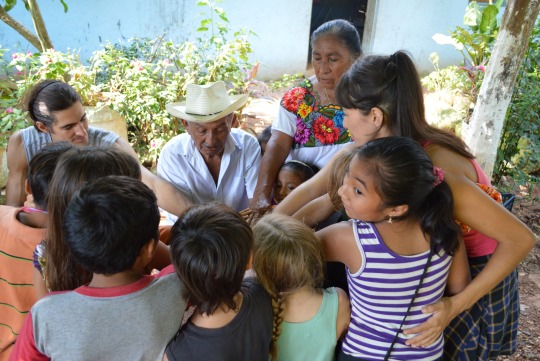
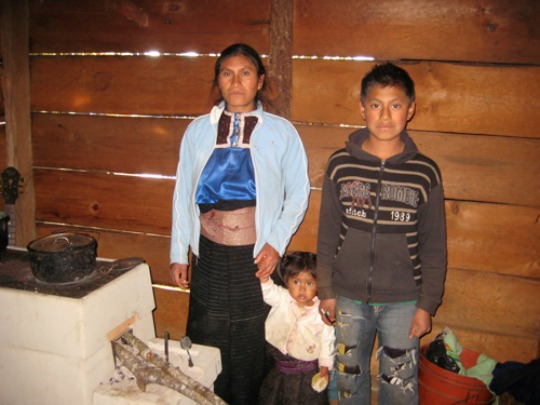
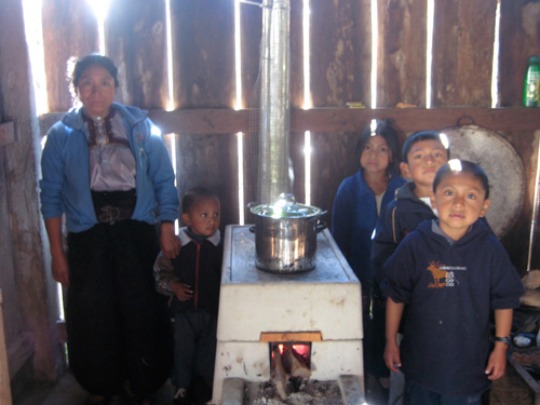
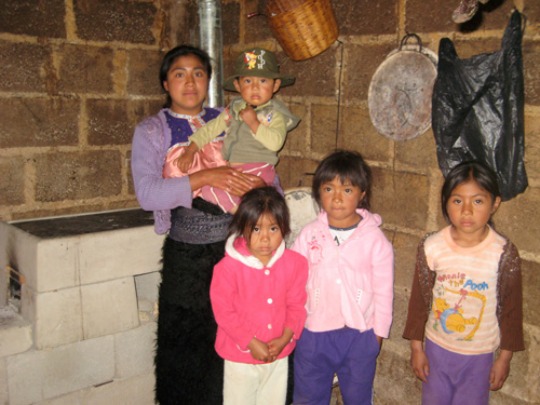
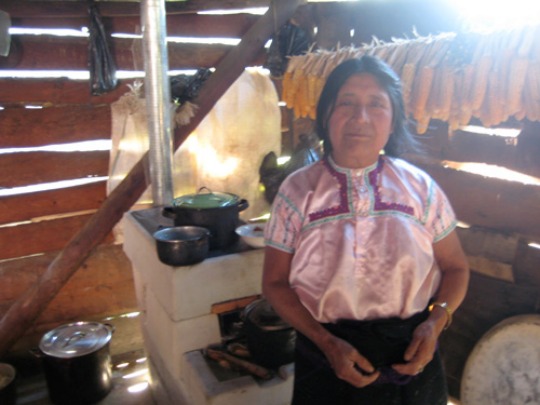
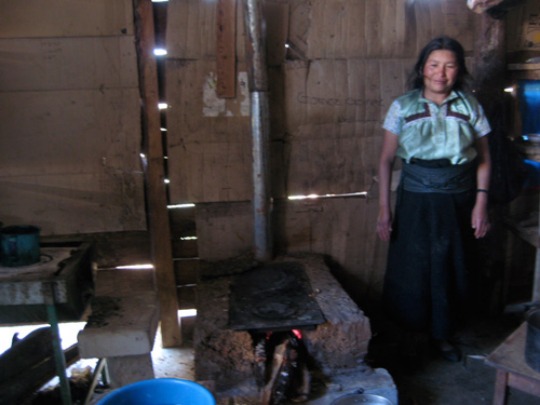
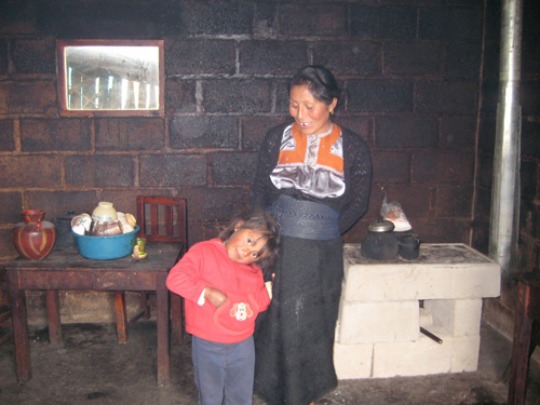


Thank you! thank you for putting this out in the world! You have such a powerful way of getting the word out and your third eye is on fire. The word is spreading, let’s just hope they let our voices be heard~ so proud of Mexico for standing up against this, and of you for your unique perspective and wise words.
BETH!!!!!! This brings tears to my eyes…..tears of pure joy for Mexico and deep sadness for the state of affairs in the Untied States. Countries far and wide are banning practices that I know in my heart need to be eradicated; fracking, GMO farming, EMFs, RFs, VOCs, and public education on the forefront, and those in the seats of power in this nation cannot let go of pride, shoulder patting, pocket stuffing, or monstrous debt, and admit fatal mistakes. Wow……I am so impressed and so excited about this news…..nor had i heard it anywhere else. THANK YOU!!!! As each day passes I lose a little more faith in this country and gain a little more respect and honor for
those around us.
Well stated, Beth. Thank you for your passion to help protect current generations and those to come.
As one who has been fighting GMO’s in the U.S. a couple of other points. Monsanto has patented many accent seeds worldwide and is challenging in court anyone caught using them. This is a practice they will continue in full force. Nice??? The other perhaps even more important point is effects to water and air quality. Each and every year GMO seeds need more and better(????) chemical pesticides as insects evolve immune to their older seeds. All these pesticides pollute water and air we breath. Does Mexico have cleaner air??? I wouldn’t be surprised. The water in the Midwest US flowing down to the Gulf is full of these chemicals. Do we know the effects??? Of course not until too late when Monsanto lives on its isolated Islands somewhere. What is new. Nothing but us activist. Keep fighting!!!!
Thanks for this informative article. And, myself and many of my friends here in the Yucatan and in the US have posted the news on our FB sites.
Yay! Yippee! I am THRILLED to hear this!!! At one point I was following the debate over GMO corn in Mexico quite closely, but it’s fallen off my radar of late. Thank you for doing your own reporting on this.
And you’re 100% right–it is getting practically no coverage in US media outlets, at least (especially?) those that I follow.
Thank you. I had no idea and I spend a considerable amount of time keeping myself informed. We shall all share this great news.
Never forget to celebrate! I think this is your best work yet, Beth. Let’s hope Washington State requires GMO labeling in their upcoming election in November. If labeling of GMO’s is required in just one state, it should be the beginning of at least knowing WHEN we are getting GMO’s and can then make a conscious decision on whether to include them in our diet or not.
Best Article I had read about GMO’s in Mexico and the world in general. By the way The last name of Federal Judge Jaime Eduardo Verdugo can translate like Executioner,Liquidator and Hangman. The executioner of the big GMO’s Lobby. LOL.
I saw this in the wall st journal as a small article and I also wondered why it wasn’t a bigger story. It is a very big deal to stand up to monsanto and I wish the press would get it out there. Thanks for your insight into the story too. You have a great mind and I love reading what is going on in your head.
Que bueno México.
Thank you for such a beautifully written commentary about such an important issue regarding the indigenous cultures of Southern Mexico and Guatemala. I am moved by Mexico’s decision to ban genetically modified corn in “corn basket” of the world. The tides are turning, slowly, but surely.
Oh Beth,…marry me. Your voice! Your passion! This message. Will share on my social media sites. THANK YOU.
Absolutely. Thank you.
We recently moved to the USA from the UK and I have been so distressed to realize that we have so little choice about GMOs here. In the UK every product was labeled for GMO or non-GMO. My own research has lead me to believe that it is virtually impossible to get USA grown non GMO grain products. It is just too difficult to guarantee freedom from cross pollination.
i am excited to hear this…it made me sad when i first learned of Monsanto.
This is a big yay in my book. I teach environmental science and I just taught my class about GMOs today.
I like the pictures you’ve posted. But I find it quite ignorant that, since you have a public blog, you haven’t considered that by exclusively posting pictures of poor families/neighborhoods in Mexico on an article about a national news event in Mexico, it serves to propagate the “ugly American” belief that all Mexican’s are poor and the stereotypes that come along with poverty (i.e., uneducated, unsophisticated, unintelligent, unable to take care of themselves, possibly thieves (due to their unmet needs), etc.). What you’ve done is so typical of the American mentality. The saddest thing is that you are probably ignorant to what you’re doing. Shame on you. Did you really spend THREE YEARS! in Mexico and didn’t bother to meet any other types of families? Yes, the ones that live in sub-urban and urban centers who run enterprises and attend universities? Were they not worthy of you getting to know them or taking pictures of them so that you could include those too and give a better representation of Mexican communities? Perhaps you saw some at least when you landed at the airport but it felt better to your ego to pretend that you are a bigger person because you’re willing to spend time with the poor instead. Not to mention the fact that it probably feels better to you to be the one in a position of higher economic power where you can pretend to be benevolent. Whatever your reasons are, you’re entitled to your choice of experience. But if that is all that you did in three years, it’s a wasted opportunity to not get to know the rest of this very socioeconomically, talented and intellectually diverse and dynamic country. Either way, I hope you enjoyed your time, but don’t pollute the internet with your naive bigotry by showing Mexicans as if they were only poor (depicting all of the stereotypes that go along with poverty). If you have a blog where you are inviting the public to hear your opinion at least have the courtesy to educate yourself and act responsibly by showing some respect to the warm Mexican culture, which, no doubt, welcomed you and your family for all of that time! I grew up in Mexico and I know that there is a lot of everything; rich and poor and among them all much creative, analytical, athletic talent. While Mexico’s economy is not nearly as strong as the US, nonetheless, it is still one of the largest economies in the world. Mexico’s economy is good enough that most professionals stay there and make a life for themselves even if it can be difficult, but it is still a good life. Due to it’s proximity to the US the primary type of Mexican immigrant that you get in the US is the poor worker who gets desperate and has little to loose. Have you considered that, for example, that may be why Chinese kids seem to all be so smart in the US? It’s not that there aren’t any dumb or uneducated Chinese kids in China, but rather that the families of those kids don’t have the money to make the trek all the way to America. For Mexican’s it’s so close that it’s relatively easy to get to the US and so when the poor and uneducated are desperate because they don’t qualify for jobs and have nothing to loose they go for it. As a result, Americans regularly make the mistake to think that what they see in the US is what is everywhere in Mexico; poor, uneducated people. They don’t realize that there are doctors, professors, scientists, lawyers, engineers, entrepreneurs, etc. who stay in Mexico and who are running the infrastructure because they don’t need to leave. REALLY, you lived there that long and you didn’t get this?! Now you pick up your little computer and post pictures along with a very important and progressive event that just took place there and you diminish the value of what the Mexican people have done (defeat the power of large corporations who are poisoning people for their greed … something Americans have not been able to manage yet) and you spoil this tremendous opportunity to inspire the American community by showing them that we can unite as people and that we can all kick butt against the large corporations and the corrupt politicians that support them. The opportunity here is to show that we are more alike then we’ve realized and that we have common goals and the power to meet them. Both societies are smart, powerful, and when organized we can do it. But instead you choose to show the stereotypical pictures of the poor and powerless families and unkept children with limited resources who no American really relates to other than when they think that they can go to the Mexican resorts, drink their beer, piss on the streets (after all they think all Mexicans are used to low living standards) and buy a cheap trinket from a poor kid on the street. Why would Americans feel inspired by your pictures or want to partner with communities that they don’t feel like they could have much in common with? Unbelievable, even after you spent time there you didn’t get it. It is so disappointing. Please get smart or shut down your blog. You’re contributing to a global problem of the ugly and dumb American.
Gloria, Congratulations! In my three years as a blogger, you win first prize for the rudest, most judgmental and hurtful comment yet. You know nothing about me. I adore this country. I adore its people. I have been deeply touched and forever changed by the lives of many, many Mexicans — and yes, underprivileged and oppressed indigenous mothers and children most of all. You are judging me as ignorant because I have a heart for (and a bank of photos from my time among) a certain demographic of humanity? Shame on me? For what? Caring? I will not entertain a dialogue with someone who has not bothered to look beyond her anger and uncertainty before insulting me so thoroughly. I truly hope that you are able to find peace within your heart in your lifetime, as you are clearly tortured by your own unchecked thoughts and misgivings about the world around you. Best, Beth
Fundamentally, I think we are coming from two different camps of conscientiousness. Perhaps this piece will help clarify where my heart is. https://revolutionfromhome.com/2013/06/why-im-no-longer-mad-at-monsanto/
You are clearly a passionate person. Please consider the effect of your delivery on your message, as seems to be your request of me beneath the insults.
First off the whole idea that these photos are of people who are poor IS the THE AMERICAN ugly eye, sounds a bit like THE MEXICAN ugly eye as well. Beth along with many of my American friends I know living anywhere south of the US see these “poor people” as much richer than the culture of Americans. These “poor people” values of family, embrace their elderly living low stress lives have a lot to teach Americans. These “poor people” are richer in ways you still have yet to learn. They are the beauty of Mexico, they take care of themselves, with intelligence and pride. How insulting of you to make these assumptions about Beth has done nothing but to show the Mexico that I love. Have you even read her blog? The shame is on you here for this horrible unfounded clueless rant. As an “ugly American” who travels a lot in Mexico I would rather spend my time with the poor there because of what they have taught me. I have learned more from them than any university could teach. Maybe you should get out of the urban areas, climb down off your high horse and learn what these people have to teach. Who is the one with ” naive bigotry ” here? What is unbelievable is that YOU do not see the richness of understanding all people You apparently only see value in formal education and economic success. This is Beth’s blog for her to design as she sees fit if you want to see something else YOU do it to your liking. Beth sees beauty apparently where you do not. For the “ugly American” I see enough about upward mobility and urban life and know there is riches beyond that has gotten lost because of it. You have a lot to learn.
This was for Gloria if it wasn’t clear.
Dear Gloria, I think you have a valid point, but it isn’t relevant here. I am not “an ugly American” but coming from the UK I am just as susceptible to your afore mentioned biases. But these pictures didn’t make me think uneducated, unintelligent thieves. While the homes shown are not like the house I live in, the people seemed rich in other ways. Everyone looked cared for and a felt a strong sense of community in these pictures. I do feel a connection with these people, I to am a mother who works hard to provide for her family and who values them above all else, I don’t live in a fancy house and I make the best of what I have. I am sorry that you are surrounded by so many people who think that happiness and success can only be measured by material gain and that perhaps has convinced you that the whole world thinks like that. Perhaps it is time for you to make some new friends, maybe you could even start here.
Gloria,
As a latina with a Ph.D. myself, from an educated South American family, a blogger, and former resident of Mexico as well as Brazil and Colombia, I ask you, what would photos of well dressed, affluent Mexicans have to do with this blog about GMOs and corn? Beth is writing about agriculture and farmers. She is showing the people who are most likely close to that cultivation. If you read her blog regularly you would see she is not in a large city where she is exposed to the types of scenes you seem to want to see in this post. Any person with common sense would see that a random clip art photo of a Mexican man or woman in a suit at an office would be extremely out of place here. Since Beth is not around people in offices she would have to use such a photo.
I also find it offensive to say that educated, wealthy people are better representatives of their culture than the poor. In my time abroad I usually preferred my friendships with the working class over the upper class. Not because I could feel superior. In fact, my financial situation put me quite on par with them. Because they were the most welcoming, the most down to earth, and without the pretense I found among the wealthy. There is enough pretense in the states,I had no interest in re-creating that social scene abroad. Perhaps Beth’s family feels similarly.
This is from Monsanto’s website:
http://www.monsanto.com/whoweare/Pages/our-commitment-to-sustainable-agriculture.aspx
“In 2008 Monsanto made a commitment to sustainable agriculture – pledging to produce more, conserve more, and improve farmers’ lives by 2030.”
The people who actually do the farming are the poor (in every country). They are the people who make it possible for the middle class to exist and not have to spend hours each day growing their own food so the middle class can get an education and one day may become professionals.
Mexico is a growing, thoughtful, vibrant, lovely country filled with lovely wonderful people. Some of those wonderful people are farmers.
Just because this blog post doesn’t include all citizens of Mexico is no reason to be harshly critical. When the Mexican middle class and professional become farmers – then they might have been included in the article.
I find it difficult to understand what Gloria is frustrated about? Is it the portrayal of farmers (campesinos) being poor and not able to stand up to multi-national corporations without the assistance of the Mexican government? And what does that have to do with middle class and professional Mexicans?
Gloria’s comments show a very presumptuous anger toward Americans and a lack of insight about this blog’s readership. It’s not what we say, but the way we say it that is often the “make or break” between navigating tensions for peace or emphasizing them for polarity. It’s hard to respect comments– whether there is any grain of truth in them or not– when they come from a point of increasing hostilities and polarity rather than peace building. Beth, I admire your response, as you stuck to the path of humility and compassion– the only way to build peace and understanding in any conflict. Thank you for sharing that spirit in your blog.
During my visit to Tulum last month, it was encouraging to witness the Mexican government’s way of treating its indigenous people, and upholding and respecting their traditional customs. It’s very good to hear this news.
http://thecitizenculture.com
Personally, I’d trade my electricity and “fluff” (though I don’t have as much as many) for the sense of community I see in the above pictures. To be able to live by a field not being sprayed with roundup…my “mini farm” is butt up to a field that gets dumped on…